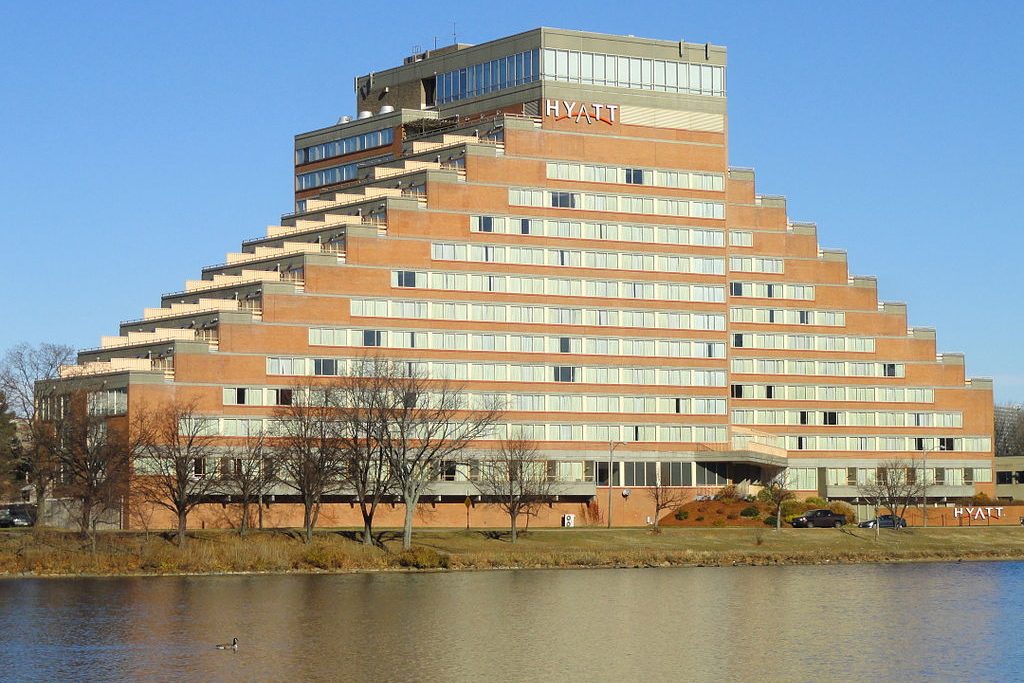Skift Take
Group business, if it ever bounced back, would take years to fully recover from the pandemic's devastating impact. That was the hotel industry's thinking for most of 2020. Hyatt leaders are now telling a different story.
It’s a brutal week for hotels, as some of the industry’s largest companies reported staggering financial losses due to the pandemic and winter surge of new cases.
Buy Hyatt’s leaders are surprisingly optimistic over a much faster-than-anticipated return of a revenue stream that was supposed to be the last to recover.
“I’m really pleased, if not surprised, to report that we’re seeing some interesting and positive data with group activity,” Hyatt CEO Mark Hoplamazian said Thursday on an investor call.
The widespread belief in the hotel industry over the span of the pandemic is that leisure travel would bounce back first, then corporate travel, and finally the group meetings and events sector. But the last of the trio was expected to take years to return to pre-pandemic performance levels.
A full meetings and events revenue recovery is still a ways off, but there are signs a recovery for the division at Hyatt may happen much sooner than previously expected.
Nearly 90 percent of Hyatt’s $324 million in group bookings revenue last year came from reservations in the first quarter, Hoplamazian said. But half of the remaining $44 million of that annual group revenue came from the fourth quarter.
Admittedly, the types of groups making those reservations are sports teams living in so-called “bubbles” to prevent spread of the virus in order to compete and government agencies taking over entire hotels to house essential healthcare workers or members of the armed services.
But corporate and association interest is also picking up for latter parts of 2021 and beyond. The first corporate meetings may happen as early as the second quarter, Hoplamazian said.
Hyatt still has a long way to go to get back to pre-pandemic levels. New group reservation activity is down 80 percent for the first half of 2021, but it improves to a 30 percent decline in the second half. Booking activity is only off by a relatively modest 10 percent for 2022.
Group reservation inquiries were up 50 percent in the first five weeks of 2021 compared to December, and a bulk of the interest was for resorts but also traditional convention hotels in major cities.
“As we look at that profile, I have to tell you, we’ve been previously saying the sequence would be leisure transient followed by business transient followed by group,” Hoplamazian said. “I think the potential upside surprise in that progression is that we might see group come back in a more purposeful way and more significant way.”
Finding Future Growth
Hoplamazian’s group business optimism was still overshadowed by Hyatt’s massive losses during the pandemic. The company posted a $203 million fourth quarter loss and $703 million annual loss for 2020.
To his credit, Hoplamazian was the most vocal hotel CEO last quarter regarding the rising winter surge of new cases and the threat that would be to the industry’s ongoing recovery.
Along with the pandemic’s devastating impact on travel demand as a whole, Hyatt is slightly more exposed to real estate than some of its competitors. The Chicago-based hotel company is similarly adopting the industry trend toward companies franchising and licensing out brand affiliation agreements. The move limits exposure to the volatility of the real estate market.
Hyatt plans to shed $1.5 billion in real estate by March 2022, but it still owns and leases 38 hotels, according to its most recent filing with the U.S. Securities & Exchange Commission. Some of those hotels are in markets particularly impacted by the pandemic like New York City and San Francisco.
Marriott and Hilton each own or lease a little more than 60 of their own branded hotels, but that’s a smaller percentage of their much larger global portfolios.
But Hyatt is doing more than selling real estate assets to chase better margins.
Hoplamazian touted the company’s late 2018 acquisition of Two Roads Hospitality — owner of brands like Thompson Hotels — as a smart bet, given the industry’s ongoing push into so-called lifestyle hotels that focus more on their bar and restaurant offerings. Along with expanding Hyatt’s exposure to the leisure sector, the deal led to a 20 percent increase in the company’s rooms development pipeline.
“The brands have captured the interest of many owners and developers around the world,” Hoplamazian said.
But Hyatt is also looking within to cut costs and find ways to boost margins in an uncertain travel climate with low demand. Along with expanding focus around food and beverage divisions, Hyatt pursued initiatives like cross-functional staffing and sharing services and resources among multiple hotels.
The moves helped individual hotels achieve “much lower” financial breakeven points than Hyatt’s typical 40 to 45 percent occupancy benchmark for full-service hotels that offer amenities like room service and on-site dining.
“These efforts have not only improved margins and reduced breakeven levels and enhanced guest experiences but will, in many cases, inform how we manage hotel operations going forward,” Hoplamazian said.
Have a confidential tip for Skift? Get in touch
Tags: coronavirus, coronavirus recovery, hyatt, mark hoplamazian
Photo credit: Hyatt grappled with major financial losses in 2020, but company leaders are upbeat by signs group business may return faster than previously expected. Daderot / Wikimedia
